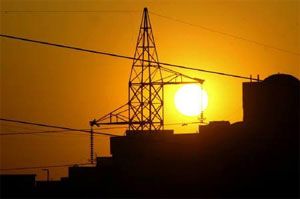The projects coming up in Bihar, Jharkhand and Odisha will together add 16,000 MW capacity to country's power generation.
Government has started the process for setting up four new ultra mega power projects in Bihar, Jharkhand and Odisha, which will together add 16,000 MW capacity to the country's power generation.
 UMPP is a thermal power project of at least 4,000 MW capacity, with an approximate investment of Rs 25,000 crore (Rs 250 billion).
UMPP is a thermal power project of at least 4,000 MW capacity, with an approximate investment of Rs 25,000 crore (Rs 250 billion).
Power Finance Corporation, the nodal agency for ultra mega power projects (UMPPs), in consultation with the state government has commenced work on these projects.
According to an official, two UMPPs have been proposed in Odisha, one in Bihar and Jharkhand each.
"Land for the proposed project in Jharkhand has been acquired. In the case of two UMPPs in Odisha and one in Bihar,
the respective state government has identified sites," the official said.
These UMPPs are being planned even as the bidding process for two such projects -- Bedabahal (Odisha) and Cheyyur (Tamil Nadu) is yet to conclude. The price bids for these proposed plants is yet to be submitted after which the UMPPs will be awarded.
NTPC, Tata Power, NHPC, Adani Power, JSW Energy, Jindal Power (an arm of Jindal Steel and Power), Sterlite Infraventures, CLP India and Larsen & Toubro had submitted applications for the Odisha project.
NTPC, Adani Power, CLP India, GMR Energy, Jindal Power, JSW Energy, L&T and Sterlite Infraventures had submitted bids for the Cheyyur UMPP in Tamil Nadu.
The final price bids for these two UMPPs may open next month.
So far, four UMPPs have been awarded. Of this, Sasan (Madhya Pradesh), Krishnapatnam (Andhra Pradesh) and Tilaiya (Jharkhand) have been bagged by Reliance Power. Tata Power is operating the Mundra UMPP in Gujarat.
© Copyright 2024 PTI. All rights reserved. Republication or redistribution of PTI content, including by framing or similar means, is expressly prohibited without the prior written consent.

 UMPP is a thermal power project of at least 4,000 MW capacity, with an approximate investment of Rs 25,000 crore (Rs 250 billion).
UMPP is a thermal power project of at least 4,000 MW capacity, with an approximate investment of Rs 25,000 crore (Rs 250 billion).